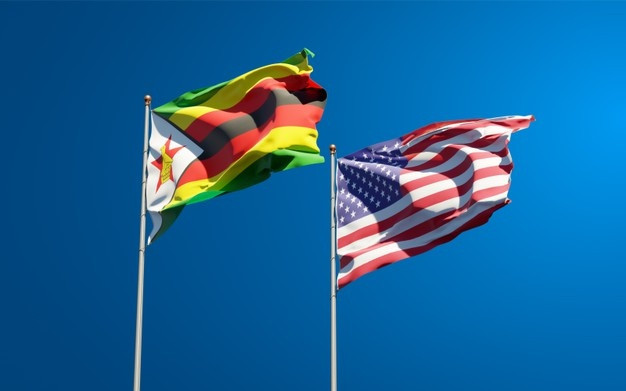
In a major diplomatic effort, Zimbabwe's President Emmerson Mnangagwa has announced the suspension of tariffs on goods originating from the United States. This decision follows President Donald Trump's recent implementation of an 18% tariff on Zimbabwean exports. The move aims to reshape Zimbabwe's trade relations and encourage American imports while boosting the country’s exports to the U.S.
Understanding the Tariff Suspension
This strategic suspension of tariffs is intended to create a more favorable business environment for American goods within the Zimbabwean market. Mnangagwa emphasized that this initiative is designed to facilitate the growth of American imports in Zimbabwe , while also promoting trade for Zimbabwean products destined for the U.S. market. On social media platforms, he stated this measure aligns with Zimbabwe's vision of international trade and cooperation.
Historical Context of US-Zimbabwe Relations
Relations between Zimbabwe and the United States have historically been strained due to several factors, including Zimbabwe’s controversial land reform policies implemented nearly 25 years ago and ongoing human rights concerns. According to U.S. government statistics, trade between the two nations was minimal, totaling only $111.6 million in 2024, highlighting the limited economic interaction.
Sanctions and Economic Measures
The sanctions imposed by the U.S. originated during the presidency of Robert Mugabe, primarily due to land reform policies and systemic repression against opposition groups. In 2024, the Biden administration adjusted the sanctions regime, replacing broad measures with targeted sanctions against specific individuals, including President Mnangagwa, for issues related to human rights abuses and government corruption.
A Commitment to Improved Diplomacy
In his defense of the tariff suspension, Mnangagwa stated that this action reflects Zimbabwe's commitment to fostering enhanced trade relations globally. He remarked, “This action underscores our commitment to a framework of equitable trade and enhanced bilateral cooperation,” aiming to open new avenues for economic growth.
Regional Response to Global Trade Changes
Critics of Mnangagwa's unilateral approach suggest that the Southern African Development Community (SADC) should be spearheading coordinated responses to international economic shifts. A concerted regional strategy could provide greater leverage and stability in negotiations with the U.S. and other global players.
President Mnangagwa's decision to eliminate tariffs on U.S. imports marks a significant pivot in Zimbabwe's foreign policy aimed at rekindling relations with the Trump administration. However, skepticism remains regarding Zimbabwe's potential benefits amid historical tensions and economic challenges. As this situation unfolds, the impact of these policies on Zimbabwe's economy and international relations will be closely monitored.
Join WhatsApp Channel
Stay connected with the latest news, updates, and exclusive content by joining our WhatsApp channel! Join now and never miss an important update from DailyPress!
 DailyPress
DailyPress





